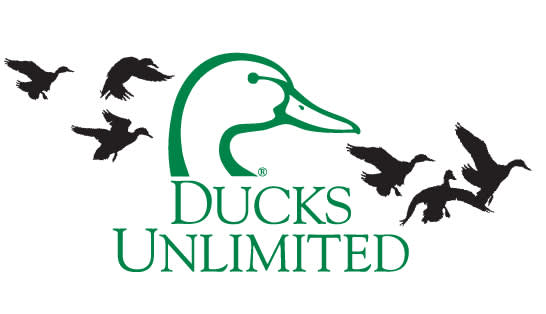Key Conservation Legislation Reaches Senate Floor
Ducks Unlimited 07.25.12

The Senate Environment and Public Works Committee unanimously reported to the Senate floor today three bills important to conservation and of priority interest to Ducks Unlimited: S. 2282, reauthorizing the North American Wetlands Conservation Act (NAWCA)through 2017; S. 2156, increasing the price of the federal duck stamp; and S. 2071, making online purchase of duck stamps a permanent option. The bills were reported without objection to the full Senate for consideration.
“We sincerely appreciate the leadership of Chairwoman Boxer and Senator Inhofe for moving these bills in a bipartisan manner in today’s action by the full committee,” DU CEO Dale Hall said during his visit to Capitol Hill this week. “We also want to thank the bill sponsors—for S. 2282, Senators Inhofe and Boxer; for S. 2156, Senator Begich; and for S. 2071, Senator Wicker—for their work in shepherding the bills through the committee process. All three bills will enhance wetland habitat conservation and opportunities for waterfowl hunters and other wildlife enthusiasts to enjoy our wildlife resources through science-based, sustainable use. We look forward to working with the Senate to quickly pass these bills.”
Hall and DU’s Chief Conservation Officer Paul Schmidt joined other key members of DU’s Public Policy Team in Washington this week to support these three critical pieces of legislation, as well as to speak with members of Congress about the important conservation measures within the 2012 Farm Billbeing debated this summer. The importance of provisions in the bill to protect wetlands and grasslands and sufficient funding for important programs such as the Conservation Reserve Program and Wetlands Reserve Program cannot be overstated.
S. 2282, one of the bills headed to the Senate floor this week, concerns the future of NAWCA, one of the most successful partnership programs for conserving key wetland habitats across North America. NAWCA uses modest federal funds to leverage non-federal funds in an average 3:1 ratio to deliver habitat conservation. Since it was enacted in 1989, NAWCA has helped fund more than 2,000 conservation projects on more than 25 million acres in all 50 states, Canada and Mexico. Reauthorization is essential to keep NAWCA funding available beyond its current expiration date in September.
“Congress exhibited great foresight when they created NAWCA and brought it through its first 22 years as the most effective wetland restoration program in the country,” Schmidt said. “NAWCA is essential to conservation now and in the future, but even more important, it is essential to the future of wetlands and waterfowl and wildlife populations for future generations to enjoy. We strongly urge the Senate to pass this reauthorization measure.”
Also under consideration this week is an increase in the price of the federal duck stamp. Sportsmen and women have once again demonstrated their support of conservation by their willingness to accept an appropriate price increase on the stamp. Nearly all revenue from federal duck stamp sales is dedicated to conserving land as part of the National Wildlife Refuge System. S. 2156 would permit the Secretary of the Interior, in consultation with the Migratory Bird Conservation Commission, to set the price for future duck stamps, within limits established by Congress. This new model would allow the secretary to consider inflation and other factors that might warrant a price increase. The price of the federal duck stamp, currently $15, has not increased since 1991.
Sportsmen and women are also increasingly buying their hunting licenses and stamps online. All state fish and wildlife agencies now make their hunting and fishing licenses and stamps available electronically. S. 2071 would make what was a pilot program in a few states available to all states to expand availability of federal duck stamps online. Hunters will still receive their paper stamps, but can now electronically purchase and receive a validation number for the federal duck stamp immediately, before heading to the blind. Ducks Unlimited first voiced its opinion on the e-Duck Stamp pilot program during congressional testimony in October 2011.

